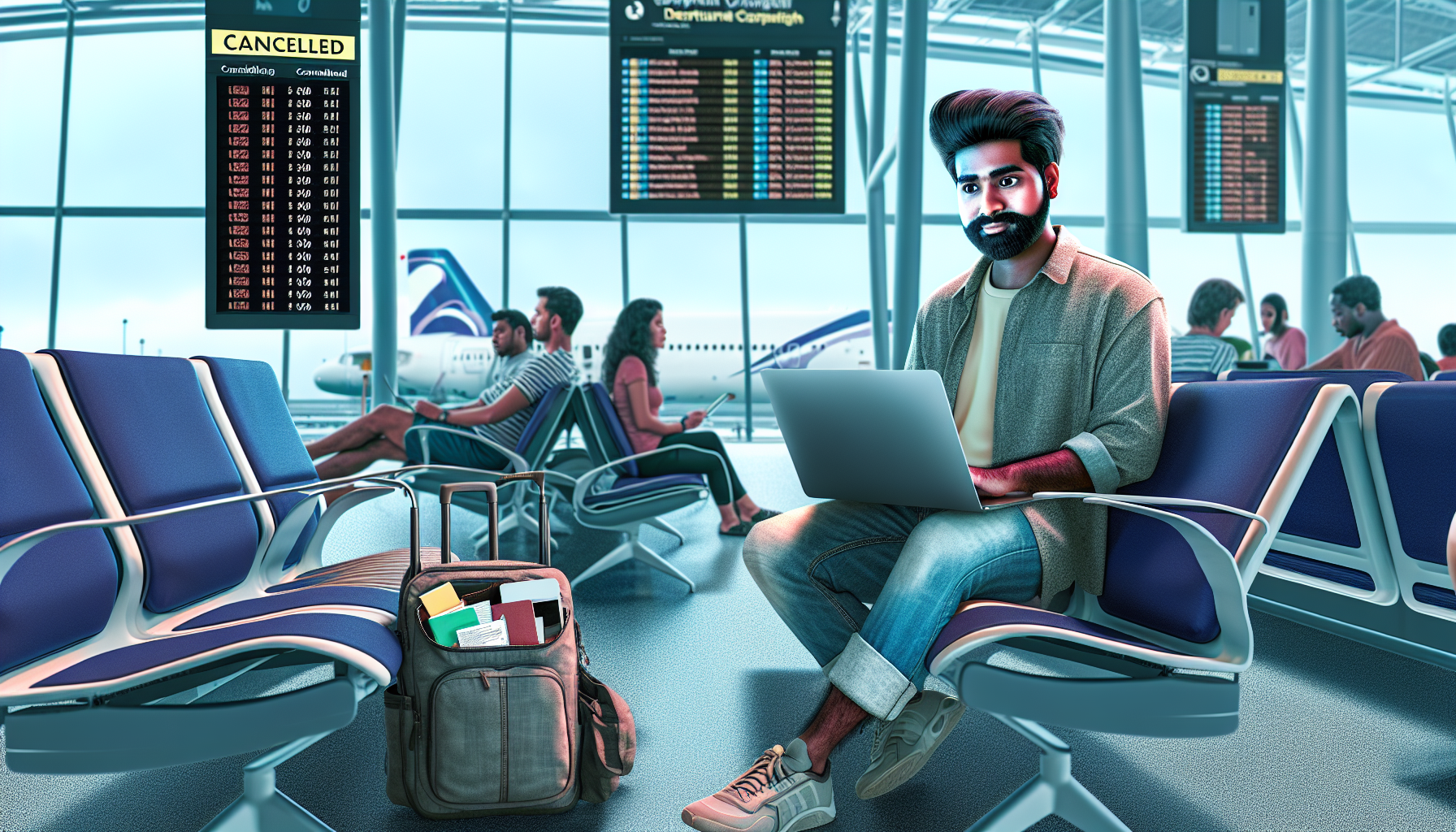Navigating the Uncertainty: How to Handle Unexpected Travel Delays and Cancellations as a Digital Nomad
Imagine you’re all packed up and ready to dive into your next exotic destination, laptop in tow, when suddenly – travel delays or cancellations strike! While it’s no secret that digital nomads thrive on living life on the edge, dealing with unexpected disruptions is the less glamorous side of wanderlust. Here’s how to stay cool, calm, and productive when travel plans hit a snag.
Key Takeaways
- Stay Connected: Use technology to your advantage.
- Flexible Work Schedule: Avoid rigid work timelines.
- Backup Plans: Always have a Plan B (and C).
- Mind Your Budget: Keep an emergency fund.
- Local Resources: Utilize local co-working spaces and resources.
Stay Connected: Leverage Technology
Being a digital nomad means that your office is wherever your Wi-Fi is. Leverage technology to stay connected. Virtual private networks (VPNs) can secure your connection, while apps like Slack, Zoom, and Trello keep you in the loop with your team.
“Preparation puts you in a position to adapt to whatever comes your way successfully.” – Tim Ferriss
Flexible Work Schedule: The Art of Fluid Deadlines
Avoid setting rigid work timelines. Craft a work schedule that allows for flexibility. This means chunking out work into smaller tasks that can be tackled anytime. For example, if a sudden train cancellation delays you by six hours, use that downtime to knock out smaller projects or catch up on emails.
Backup Plans: Plan B, C, and Maybe D
Having backup plans in place is essential. Know the alternative travel routes and accommodations. If your flight gets canceled, having standby options like buses or different airlines can save the day. Keep a digital notebook with all the emergency contacts and backup plans for quick reference.
Mind Your Budget: The Emergency Fund Safety Net
Unexpected travel delays often come with unplanned expenses. Keeping a separate emergency fund ensures that you won’t be left in a financial bind. Aim to set aside at least $1000 for travel emergencies.
| Expense Type | Estimated Cost | Notes |
|---|---|---|
| Alternative Travel | $200 | Flights, trains, or bus tickets |
| Accommodation | $300 | Hotels or Airbnb |
| Food & Essentials | $100 | Daily meals and necessities |
| Communication | $50 | SIM cards, internet costs |
Local Resources: Co-Working Spaces and More
Utilize local resources wherever you are stranded. Many cities have excellent co-working spaces that offer day passes. Libraries and cafes with solid internet are also great options. These places provide a productive environment, letting you keep your workflow steady.
“Flexibility and resourcefulness are the hallmarks of any successful traveler.” – Nomadic Matt
Experiential Tips: Embracing Serendipity
Part of the joy of being a digital nomad is the unexpected moments that turn into unforgettable experiences. If you’re facing an unexpected delay:
- Network Locally: Attend local events or meetups.
- Explore the Area: Turn delays into mini-adventures.
- Self-Care: Use the downtime for mental and physical relaxation.
By embracing these moments, you transform potential stress into delightful diversions that enrich your nomadic lifestyle.
Remember, every hiccup on the road is a chance to grow, learn, and maybe discover an unexpected gem along your journey. Approach travel disruptions with a positive mindset, and they’ll become just another chapter in your digital nomad adventures.
For more information:
FAQ
Q1: What should I do first when my travel plans get canceled?
A1: Contact your airline, train, or bus service provider for updates. Use this time to reassess backup plans and alternative routes.
Q2: How can I ensure I always have a good internet connection?
A2: Invest in a portable Wi-Fi device and have local SIM cards handy for mobile data. Apps like Speedtest can help you find strong internet hotspots.
Q3: What’s the best way to handle unplanned expenses during travel disruptions?
A3: Always maintain an emergency fund and use budgeting apps to track unexpected costs. It helps to have travel insurance that covers cancellations and delays.
